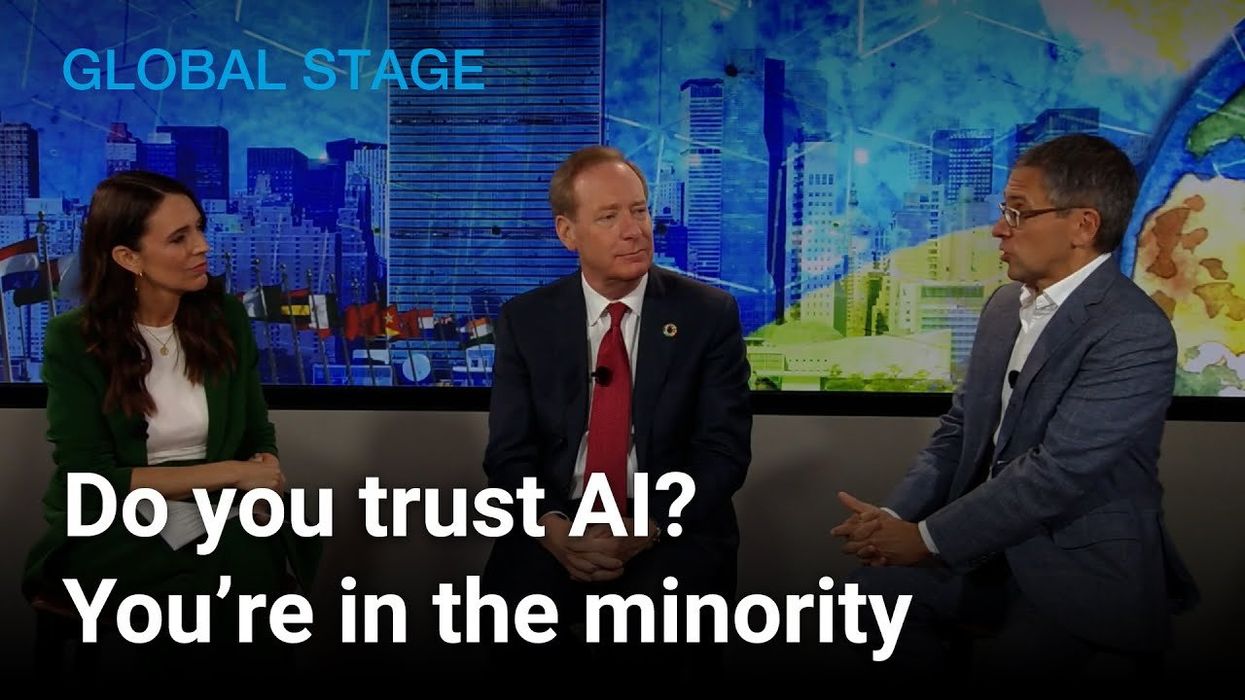Digital Governance
Will consumers ever trust AI? Regulations and guardrails are key
Consumers are more pessimistic than optimistic about AI’s impact on their daily lives. Former New Zealand Prime Minister Dame Jacinda Ardern, Microsoft Vice Chair and President Brad Smith, and Eurasia Group and GZERO Media President Ian Bremmer sat down to discuss the problem.
Sep 24, 2023


